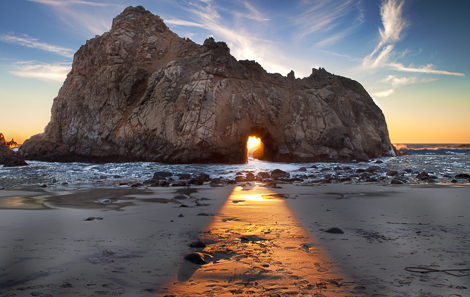Volume 3, Issue 52
Sometimes the miracles in our lives are more obvious than at other times. The world is always miraculous, it’s only us that sometimes see the miracle and other times repress it from our awareness.
Babies, kittens, flowers, stars, the Moon, the ocean, mountains, trees, falling in love together — these are among the more obvious miracles.
We often do not notice how improbable certain events are that occur within our detected experience bubble. We are not trained in statistics enough to realize how long the odds are of this happening and then it actually happening, and we just go along with it, taking it all for granted. The feeling is that if it is happening it can’t be miraculous, it must be all mundane.
By tuning down the appreciation for experiencing all that is life, we are radiating very little gratitude, and may even radiate to the universe as an ingrate. The universe responds by turning the dial on the lesson machine so that it bumps us a bit more roughly to make its points, since we seem to be missing the polite subtle hints.
Its intent, since it is guiding a blind man's bluff version of itself back to its full Self, is always beneficent. We the Universe are aggregately much too smart to kick ourselves in the groin just for fun.
A relatively new physics darling is the multiverse theory, a new name for what Heinlein called the “universe sheath”. Picture a very large or infinite number of universes all lying very closely side by side like a fat stack of clean paper in a drawer.
Maybe we tune from one to another. Perhaps they are laid out in a heaven-hell continuum and we can tune to the next more heavenly universe and actually make the crossover.
Is that what happened to Ina and me that day we visited Pfeiffer Beach back in the 70s?

"Pfeiffer Beach" courtesy of Craig Colvin Photography
My lady friend and I go back to our favorite beach, a well-known beach in California. It is totally different: there are Arabian brown and white striped tents, red flags at their tops fluttering in the breeze, in a row along the sand near the water and at the entrance path onto the beach there is now a mostly-completed wooden Church.
We walk up a few steps, smelling the new wood, and a man greets us at the door and lets us look in at the unfinished interior. We are not yet allowed to come in he says, though he doesn’t say why.
We walk the beach marveling at how amazing it looks. It’s as fine a day as a day can be. We are feeling fit as we walk and our hearts are light.
We come back another day and there is no church, no tents, just the familiar beach. Residents insist there never was anything built in that spot, and indeed there was no sign of anything disturbing the old tangle of sand and roots where we had walked up the steps together.
Needless to say this blew our minds, having both experienced the same thing with no help from our friends, so to speak.
Observer state is ideal for not taking the familiar for granted, for counting the cards and for noticing improbabilities.
Wishing you much personal experiencing of the miracle you are in, and much personal experiencing of the miracle you yourself are.
Best to all,
Bill
Watch for my new book, You Are the Universe: Imagine That, coming soon.
For those interested in my work in the media business world you might want to check out this video. Or this collection of videos.
Follow my regular blog contribution at Jack Myers Media Network: In Terms of ROI. It is in the free section of the website at Bill Harvey at MediaBizBloggers.com.
